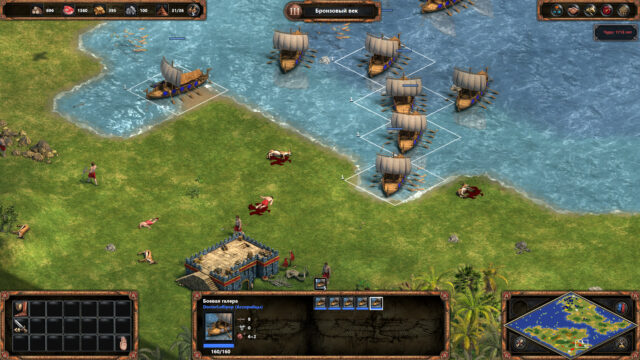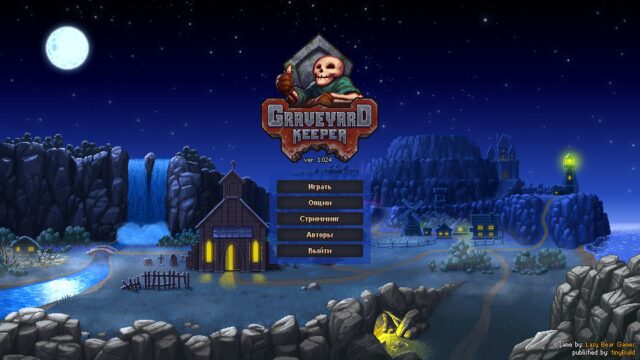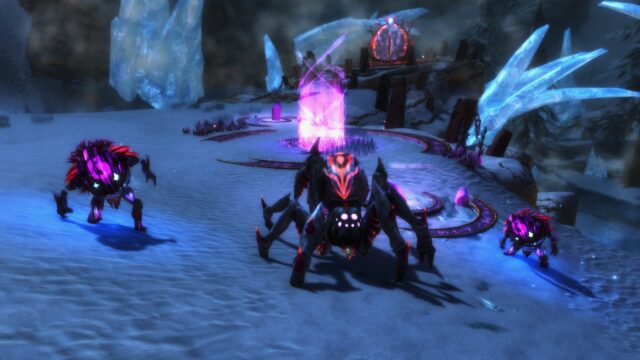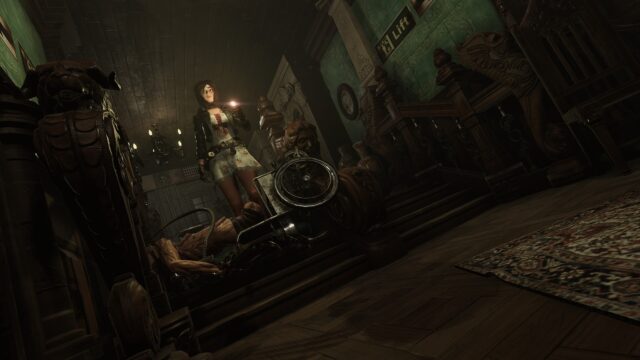Eldritch Review
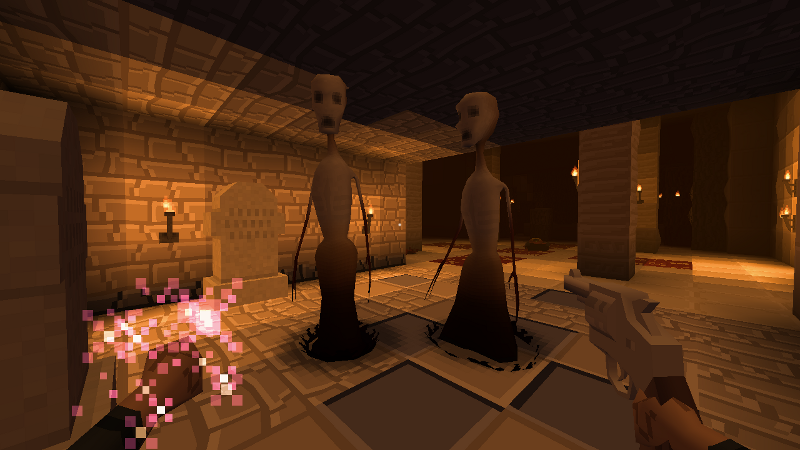
Eldritch is a first-person action game with randomly generated levels and almost constant deaths, which shamelessly borrows a lot from Minecraft, Spelunky, and our beloved Howard Lovecraft.
First world. I mock, shrug, and celebrate victory.
Second world. I hide, nervously look around, and run away.
Eldritch, a bold and illegitimate child of Minecraft and Spelunky, initially patiently waits, pretending to be a simple, cartoonish, and shameless follower of its more illustrious patrons, but then blossoms into a lush garden of unconventional terror, reminiscent of Doom. The concept is simple – you explore a universe that draws equally from Lovecraft and Minecraft, visiting different corners of it through portals in an occult library that transport you to randomly generated and peril-filled levels. In general, any experienced observer will recognize a typical post-roguelike here at first glance.
You make your way through blocky caves, inhabited by all sorts of killers like Innsmouth fishermen, albino spiders, creatures with crocodile faces, and monsters resembling He-Man’s Orko, searching for weapons and upgrades, and ultimately mystical artifacts that grant access to new and even more dangerous levels. But let’s not get ahead of ourselves. If you die, you have to start over, although if you managed to fill your pockets before premature demise and instant resurrection, you can spend those hard-earned money, quite literally soaked in blood (intestines, spleen, and other entrails), on purchasing items in shops, which, by the way, are not encountered very often.
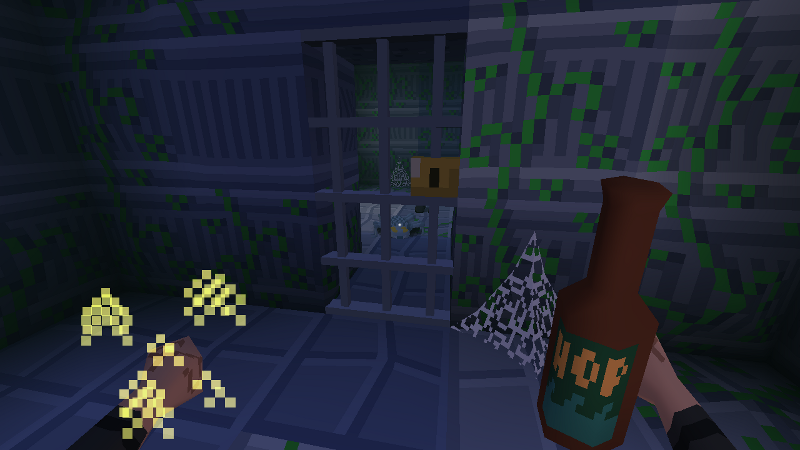
Of course, it’s hard to dismiss the comparison to Minecraft, and a part of me was literally furious at such an obvious similarity, but that doesn’t mean these games are two peas in a pod. There is no building here, and block destruction is mainly limited to rare use of precious explosives when you need to make a short path to bypass a closed door (keys, however, are regularly found, but most of the time you’re running at full speed). The impressions here strongly resemble Spelunky, and yet Eldritch is still far from the delicate and elegant balance between frantic racing and strategy that the game created by the guys (and probably girls too) from Mossmouth was famous for. Naturally, being a first-person game (where you control a character with creepy long arms) rather than a side-scroller, Eldritch is very different from its 2D counterpart – here you need to hide more and make more precise strikes, rather than jumping on platforms and dodging. However, this is a more open game – monsters are constantly and randomly generated, so you simply won’t be allowed to rest on your laurels.
Eldritch seems raw and rough – both in appearance and in spirit – but to tell the truth, most of the time this suit suits it well. The narrative basis of this creation is based on Lovecraft’s legacy, which is supposed to create an atmosphere of fear and horror, but the monsters here resemble more like pixelated puppets and dolls, which are not scary at all. The essence is different. In fast-paced and even panic battles, where you usually desperately beat barely animated creatures that can do much more than just a counterattack or a predictable fireball throw. Expect impressive variety of tactics and monstrous inventiveness.
At first, the game is very simple – you fight simple and archetypal monsters, but on the second level, the enemies start to look very strange and ominous. And more dangerous too. When I realized the damage they could inflict on me, seeing me, as well as the fact that some of them couldn’t even be killed, I wanted to stay away from them for miles. They weren’t scary in themselves. What scared me was the realization that they could instantly stop my current deadly run, and it would cost me all the loot and equipment. Take, for example, those creatures with crocodile faces, which only need to move and 75% of your neck will immediately become a sacrifice to the incomparable Cthulhu if your turns back and forth are not fast enough. However, it’s hard to even call their movements – the reptiles are animated so simply that it’s even funny – but they are effective and incredibly annoying. Partly because you can only deal with them using explosives.
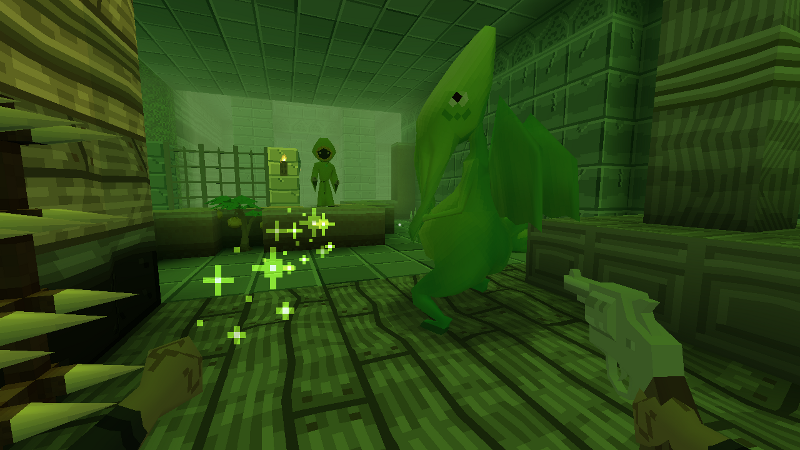
Another enemy, the result of an unimaginable alliance between the Stickman and that lamp-headed man from Edward Munch’s painting “The Scream”, cannot be killed at all. Only temporarily knocked down. And after a few seconds, getting back on its feet, it will continue its endless and long-armed pursuit, not only threatening your virtual life, but also vacuuming up all the loot nearby.
Everything is simple, but effective. The floors are dotted with spikes and holes, and stalactites hang from the ceilings, into which columns of the craziest shapes collide – each randomly generated level turns into a claustrophobic labyrinth. Enemies don’t like to announce their arrival and pop out unexpectedly. And it’s not scary, but rather annoying. Most enemies don’t pose much of a threat and are sent to the ancestors after a couple of powerful knife strikes or a few toy bullets, and if you manage to catch them off guard, one shot/kick is enough. Sometimes you can come across a temple, where praying can grant you a random spell. It can be a barrier, limited flight, hypnosis, but each use of a spell requires money. This creates an interesting tension: you have to decide what to spend your cash on – either on new equipment and health, or on mystical assistance.
However, sooner or later you will surely say goodbye to this magic, although death does not occur as often here as in Spelunky – usually, it will be your own mistake to blame. Or even laziness, when you realize that the game has outsmarted you and you simply give up. Some complain that Eldritch is too easy – like a game of standard difficulty – but as I think, it reflects the thirst for the same challenging challenge as in Spelunky. However, this disappointment can be overcome if you start thinking in the spirit of “this is what I expected”. The question is, how much control do you have over your own mind to perform such mental tricks? I don’t always succeed.
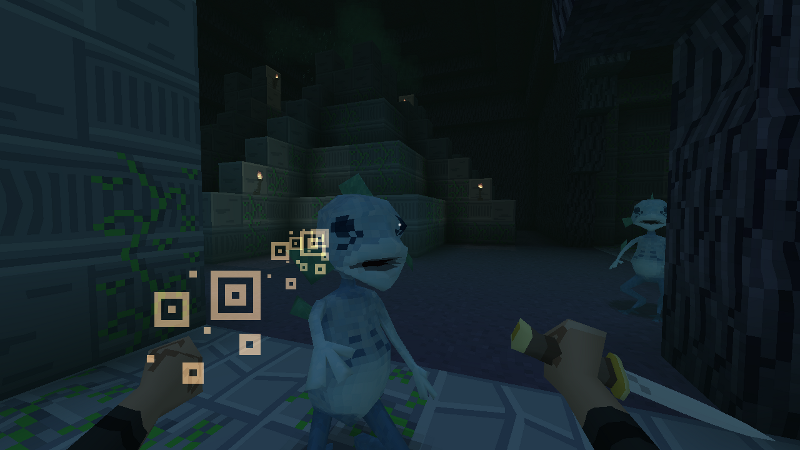
However, the game has a more typical problem – a limited range of items and weapons, repetitive actions, and barely noticeable changes between randomly generated levels. I suppose in the future Eldritch will be equipped with new content – the same Minecraft could serve as a source of inspiration – but in its current state, it quickly becomes boring. There is a New Game+ mode where the difficulty increases, but the overall experience will be the same.
Again, I am confident that over time Eldritch will become more engaging, but right now it is a one-time game. This is not bad at all, considering that nowadays playing Spelunky and Minecraft almost feels like work. I like its lightweight nature, and Eldritch seems to have aimed for this niche.
In other words, I have no serious complaints. And by the way, Eldritch alredy released.
Share
Discuss
More Reviews

